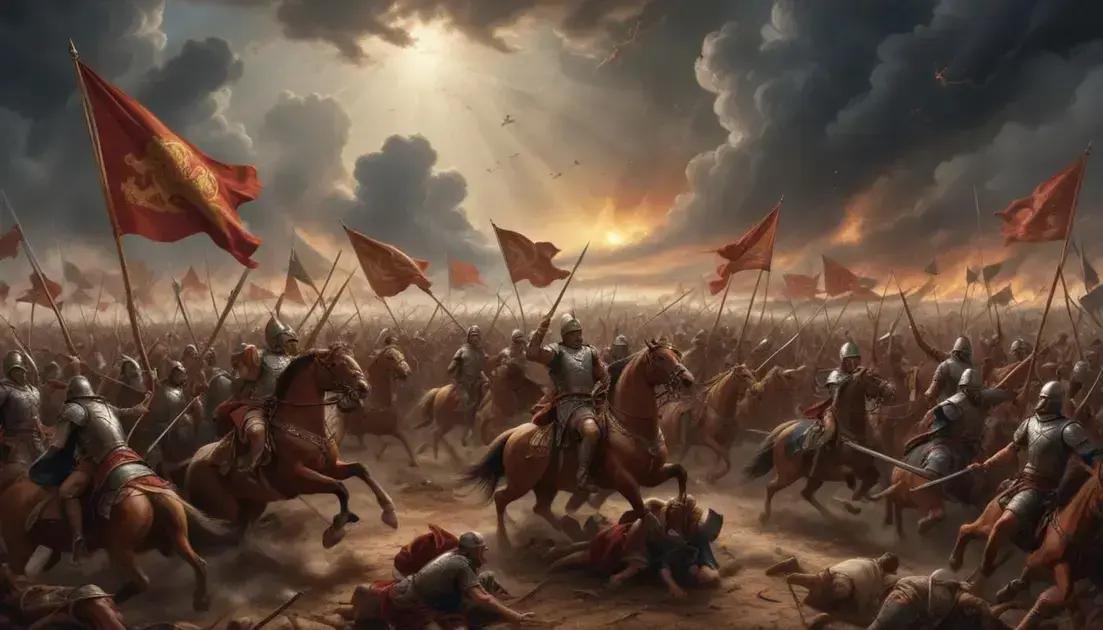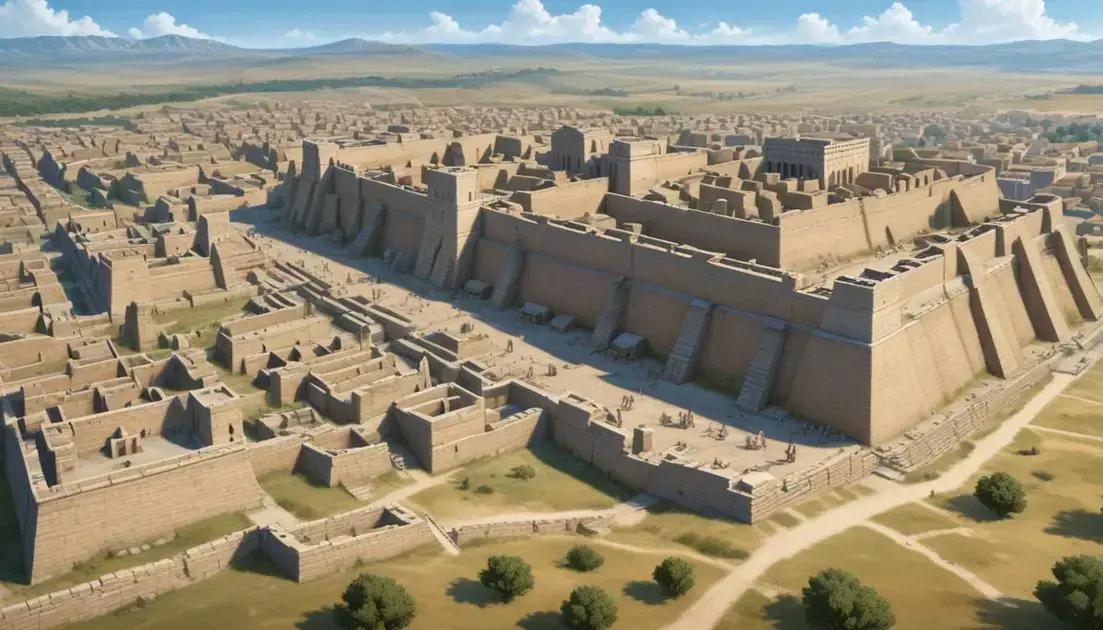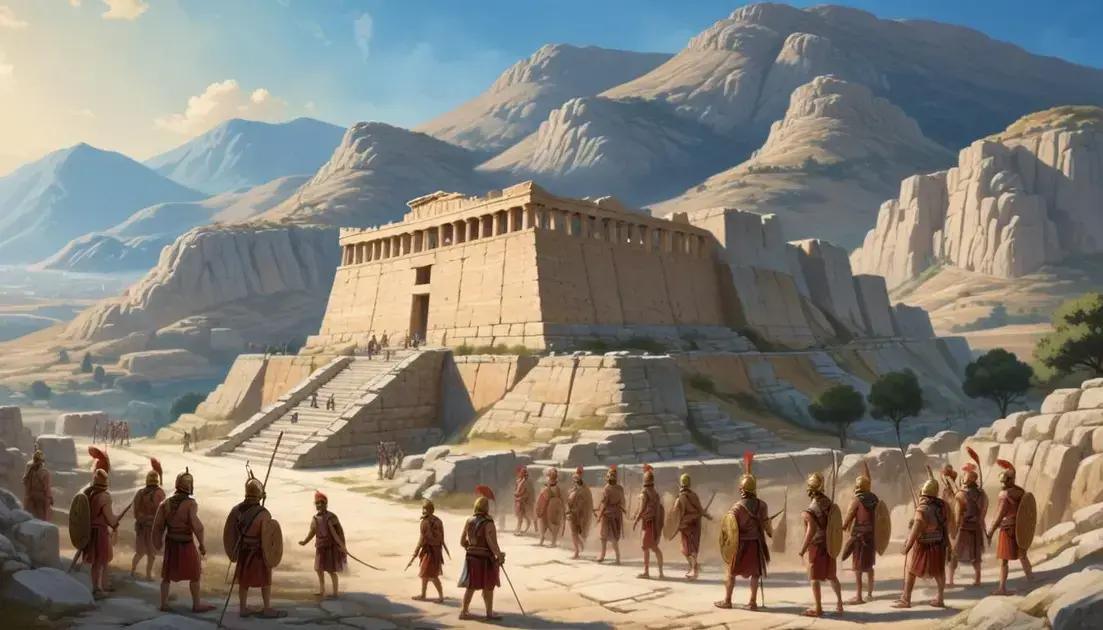
Alexander the Great and the Victory at Gaugamela
The Battle of Gaugamela marked a significant turning point in ancient history, where Alexander the Great defeated Darius III of Persia in 331 BC. This victory not only facilitated Alexander’s rapid expansion into Persia but also solidified his military legacy. It demonstrated how strategic tactics could overcome larger forces, impacting warfare strategies long after. The aftermath saw cultural exchanges flourish as Alexander’s empire grew, influencing regions across the globe. Understanding this battle provides valuable insights into leadership, ambition, and the effects of conquest on civilization.
Did you know that Gaugamela was the stage for one of history’s defining battles? Alexandre’s clash against Darius III not only sealed his fate but changed the course of empires forever. Let’s dive into the drama!
The Battle of Gaugamela: Key Details
The Battle of Gaugamela took place on October 1, 331 BC. It was a crucial clash between Alexander the Great and Darius III of Persia. This battle is often seen as one of the most significant in ancient history.
Alexander’s army was smaller, yet they were highly trained and motivated. Darius had a much larger force, thought to be around 100,000 men. This made the odds seem against Alexander.
Before the battle, Alexander carefully planned his strategy. He used the terrain to his advantage, knowing that speed and surprise were key. Darius, on the other hand, relied on his numbers and large war chariots.
As the battle began, Alexander attacked quickly. He aimed for Darius, hoping to strike fear into his enemies. In response, Darius tried to use his chariots to break Alexander’s lines, but this tactic failed.
After several hours of fierce fighting, Alexander’s forces gained the upper hand. Darius realized his position was hopeless and fled the battlefield. This was a turning point for Alexander, leading to his control over Persia.
The victory at Gaugamela marked the beginning of a new empire for Alexander. His tactics are still studied today, showing how brains can beat brawn in battle.
Impact of Gaugamela on Alexander’s Empire
The Impact of Gaugamela was immense for Alexander’s Empire. This battle was not just a victory; it marked a new era. After defeating Darius III, Alexander gained control of Persia.
By winning this battle, Alexander opened the doors to many lands. He took over rich territories. This gave him resources and wealth to strengthen his army. It also helped him build his reputation across the region.
Alexander’s victory inspired his soldiers. They saw their leader as nearly invincible. This spirit pushed them to fight harder in future battles. Morale was high, and they were dedicated to their cause.
As a result, Alexander expanded his empire rapidly. He moved into Egypt where he was welcomed as a hero. Later, he marched further into Asia, seeking even more conquests.
The battle also had a long-term effect on history. Alexander’s tactics and strategies are still studied today. His ability to overcome larger forces changed warfare forever. Many leaders looked to Gaugamela as a lesson in courage and strategy.
Gaugamela not only expanded Alexander’s territory but also set the stage for cultural exchanges. The blending of cultures in the empire led to a rich mix of traditions.
Strategic Importance of the Victory
The Strategic Importance of the Victory at Gaugamela was huge for Alexander. This battle changed the balance of power in the ancient world. By defeating Darius III, Alexander showcased his military skill and leadership.
One key advantage was the control of Persia. This empire was rich in resources. Gaining it meant access to wealth and manpower. This strengthened Alexander’s army and expanded his influence.
Another factor was Darius’ retreat. When he fled, it sent shockwaves through his troops. Many Persian soldiers lost faith in their king. This made future conquests easier for Alexander.
Furthermore, the victory helped establish his reputation. Alexander became known as a brilliant tactician. Other leaders took notice, and many sought alliances with him. This opened doors for more strategic partnerships.
Gaugamela also allowed for quick expansion into other territories. Cities in Asia welcomed Alexander as a liberator. They supported his cause, boosting his ranks with local soldiers.
In addition, this battle set a precedent for future conflicts. It proved that a smaller, well-trained force could defeat larger armies. Alexander’s tactics are still studied in military schools today.
Consequences for Persia
The Consequences for Persia after the Battle of Gaugamela were profound. Persia faced a major shift in power. Losing the battle meant the end of Darius III’s reign and weakened his empire.
First, Alexander’s victory opened Persia to invasion. Many territories fell quickly under his control. Cities and regions that once stood strong were no longer protected. This change allowed Alexander to expand his empire rapidly.
Second, the loyalty of Persian soldiers faltered. When their king fled, many soldiers lost trust in his leadership. They felt abandoned and demoralized. This made it difficult for Darius to gather a strong army for future battles.
Pervasive fear spread among the Persian population, too. People saw how quickly Alexander conquered their lands. Many cities surrendered without a fight, believing resistance was futile.
Moreover, new leaders arose in the aftermath. With Darius gone, power struggles began. Different factions fought to fill the void he left. This chaotic environment made it hard for Persia to regroup and recover.
Lastly, the cultural impacts ran deep. The blend of Greek and Persian cultures began to take shape. This fusion influenced art, language, and politics in years to come.
Legacy of Alexander the Great
The Legacy of Alexander the Great is a fascinating topic. Even today, people talk about his amazing achievements. He created one of the largest empires in history in a short time.
His military strategies are still studied in schools worldwide. Scholars look at how he used speed and surprise. Alexander showed that smaller, smarter forces can win against larger armies.
Alexander’s blend of cultures was another key part of his legacy. He encouraged the exchange of ideas between Greeks and Persians. This cultural fusion shaped future societies in many ways.
Furthermore, new cities sprang up during his rule. He founded places like Alexandria in Egypt. These cities became hubs for trade and learning, attracting many people.
Alexander also inspired leaders for centuries. His story of ambition and conquest motivated many. Figures like Julius Caesar and Napoleon looked to him for inspiration.
Even after his death, Alexander’s influence endured. The Hellenistic period saw Greek culture spread far and wide. This spread shaped art, science, and philosophy in many regions.
In short, Alexander’s legacy touches many aspects of our world today. His impact on military tactics, culture, and leadership remains strong.
Conclusion
In conclusion, the story of Alexander the Great is a powerful reminder of what one person can achieve. His military skills and bold strategies changed the course of history. The victory at Gaugamela was not just a battle; it marked the beginning of a vast empire.
Alexander’s legacy continues to influence the world today. His blend of cultures enriched societies and sparked new ideas. From leadership to military tactics, his impact is felt across centuries.
Ultimately, understanding Alexander’s journey helps us learn about ambition and resilience. His life teaches us that great leaders can inspire change and shape the future, long after they are gone.


